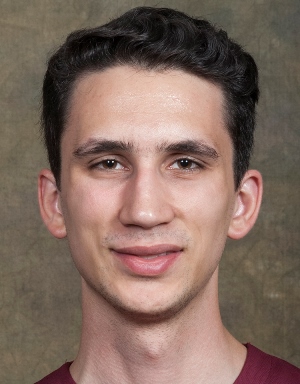
The Wayne State University School of Medicine's Moaz Sinan is among a group of writers of a letter published in the April 28 issue of Science Magazine, the journal of the American Association for the Advancement of Science that shares a peer networking and mentoring model for scientists who are deaf and hard of hearing.
"Community network for deaf scientists" was signed by Sinan and 33 colleagues who described themselves as a community of scientists who have personally experienced the barriers imposed by hearing loss, first described in a previously published letter by another scientist that proposes an institutional hub for deaf and hard-of-hearing trainees to build their scientific careers.
Sinan, who will begin his second year of medical school July 31, is a member of the Association for Research in Otolaryngology, which originated in 1992 with three founding members. It has since grown globally to include more than 60 undergraduates, professors, audiologists, physicians, graduate students, medical residents, postdoctoral fellows and leaders in health care.
The letter describes an alternative model of distributed academic peer networking that has enabled the writers to overcome personal and professional barriers, while promoting the inclusion of hearing-impaired scientists at all levels of biomedical research. The authors propose that their distributed model of mentoring -- focused on junior faculty, pre- and postdoctoral trainees competing for research awards -- could serve as the next generation of mentorship, and "raises awareness of the societal cost of hearing loss and energizing the trajectories of deaf and hearing-impaired scientists globally."
"Speech, cued speech, sign language and other communication modalities are all valued. This distributed model of integration requires each member to make a career-long commitment to mentorship of others with hearing loss to propagate successful solutions to individual challenges that are surmountable with inspired and motivated input," Sinan and his colleagues wrote. "Quality mentorship is vital for trainees and junior scientists to achieve career goals and is perhaps more critical for deaf and hard-of-hearing scientists who intrinsically face communication challenges."
The group meets regularly at professional conferences where their network has secured equal access to podium and poster sessions through sign language interpreters, hearing-assistive technology and real-time captioning.